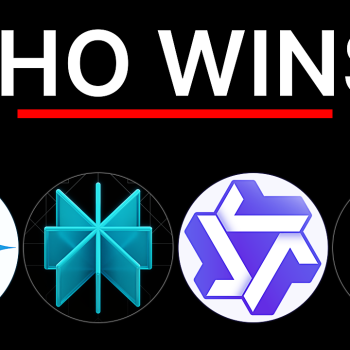ChatGPT has educators panicked. They need not be. This article provides the definitive solution to how to teach in the era of AI.
If you are like me, you have had a variety of reactions to the appearance of ChatGPT, and have been dismayed and bewildered by at least some of the reactions to it and claims about it.
If you are involved in a very advanced level of education, supervising students who are doing research that is at or close to the cutting edge of new discoveries, then you have hopefully already realized that in this area ChatGPT and other similar tools are not capable of this. They can certainly do what they are designed to do – generate text – in a manner that may pretend to do this. ChatGPT is designed to do one thing and one thing only, namely imitate human speech. It bears repeating that it only incorporates accurate information within the text it generates by virtue of the patterns in the speech from which it has learned. If you ask obscure questions, or ask it to break new ground, it may generate text that claims to confidently provide what you have asked for, but if you look at that text you will certainly find shortcomings and falsehoods.
The Big Challenges for Educators
The big challenges are in the realms of creative writing and lower level research. The truth is that student cheating has been possible in these areas for a long time. ChatGPT can provide the kinds of basic answers that Wikipedia and Sparknotes can, and students have long been plagiarizing from those sources. ChatGPT of course generates new text with that content, making it less straightforward to catch this than it is to catch copy and pasting from online sources with slight rewording.
If you have been told that an AI-checker will solve your problem, do not believe it. As was already the case with tools like TurnItIn, they can sometimes draw academic dishonesty to your attention, but if relied upon you will inevitably falsely accuse the innocent and fail to catch the guilty.
Also, if you expect or hope that one day AI will do grading for you, then you are part of the problem. This obviously doesn’t apply to the kinds of quizzes and answers that a scantron can process. Students cheat most often when they feel that the work they are being asked to do is meaningless, pointless. If your grading feels the same way, you will want to cheat as well. The answer is not to have students submitting AI-generated content which an AI then grades. The more fundamental long-term solution is to rethink both the number and types of assignments so that they are meaningful. Just as important is for students to be helped to understand why and how assignments are important.
Generating Answers vs. Evaluating Answers
Part of the answer to the current technological situation is to stop asking students the kinds of questions that they can find the answers to online. A better assignment than asking them to summarize pages 1-25 of the novel or to explain the three main theories of sedimentary flow, ask them to fact check and annotate the explanations they find online, providing reliable sources to support their claims.
This isn’t the decisive solution that the headline refers to. The “annotate what is online rather than write” solution will help reduce the likelihood of cheating using AI in very short overnight writing assignments. It is certainly possible for students to ask ChatGPT to verify the information and provide reliable sources, explaining why the sources are reliable. The further in that direction that one goes, however, the more likely it becomes that text generated by ChatGPT will contain falsehoods and inaccuracies. Try it and see. If a question that you are asking is one that even ChatGPT can answer, then the solution is to ask better questions. If ChatGPT can fabricate verification of particular information and provide genuine sources of an appropriate sort, then adjust the question to be about something more specific or more detailed.
The Solution for Longer Writing Assignments
For most or all longer and larger writing assignments and research projects, there is something even better and more effective that educators can do that will reduce student attempts to cheat using ChatGPT. The reason this solution works is that, for students to try to get ChatGPT to produce something that looks like what you are requiring them to submit will inevitably fail and will take much more work than actually doing the assignment.
The solution: require students to submit all the versions of their document saved by their cloud storage utility, whether it be Google Drive, Dropbox, OneDrive, or something else. All of these services back up files and allow backup copies to be downloaded.
I am not sure why it took me so long to think of this solution, but now that I have, I am excited by its pedagogical potential. Students often imagine that they can write a research essay the night before it is due. That is simply not feasible and certainly not advisable. Using this approach can require students to spread out their work, to start early. You can even require a minimum number of different days that students must work on their essay or story.
In most instances you will not want or need to look in any sort of detailed way at the earlier drafts. Even a quick glance will show the process students followed in writing.
Conclusion
Prohibiting students from using ChatGPT will never work as a long-term solution. Encourage them to use it, and help them understand what it can usefully do and what it cannot. Don’t be like the teacher who got so discouraged that they gave up teaching. Students have always cheated and there will always be some. Ultimately this is a question of ethics more than anything else. The fact that my own field is religious studies doesn’t make cheating less likely. At least, I am not aware of any evidence that it does. Students cheat when they feel compelled to get an A for whatever reason and doubt their ability to do so. Sometimes it is time management. Sometimes it is laziness or because they don’t understand that it is the activity itself that is the point rather than the output.
For too long, we have given assignments and graded them in ways that fostered missing the point of the whole exercise. If we assign a novel and quiz students on names and details, they will read the novel focused on the wrong things, and may cheat because they fear their memory will fail them. The point of reading a novel is the experience. The only way to find out about students’ engagement with a novel is to ask about its impact on them. In the process they will need to get the details of the story right, but the fact that they may need to look back and remind themselves of names need not be an issue. Even before the era of LLMs arrived, students could easily Google such things and have a high probability of getting the answer in seconds. being freed from needing to test memorization is a wonderful thing.
This is why I redesigned my course on the Bible many years ago to focus on information literacy skills. Finding reliable sources of information, understanding them and using them wisely, these are the key skills students need. If the arrival of ChatGPT on the scene leads more teaching and learning to focus on this, it will be a very positive development indeed.













